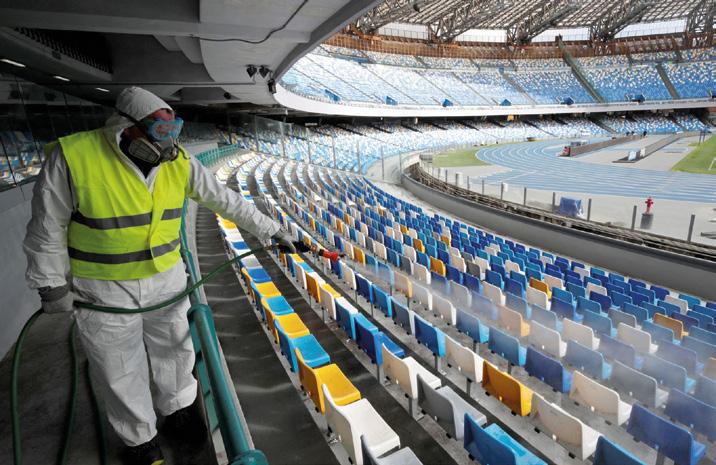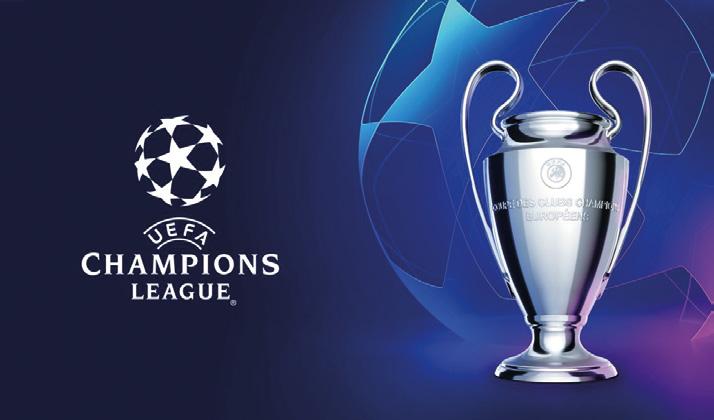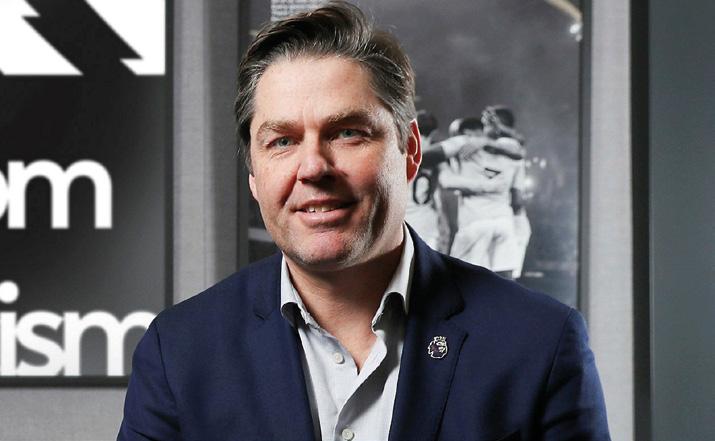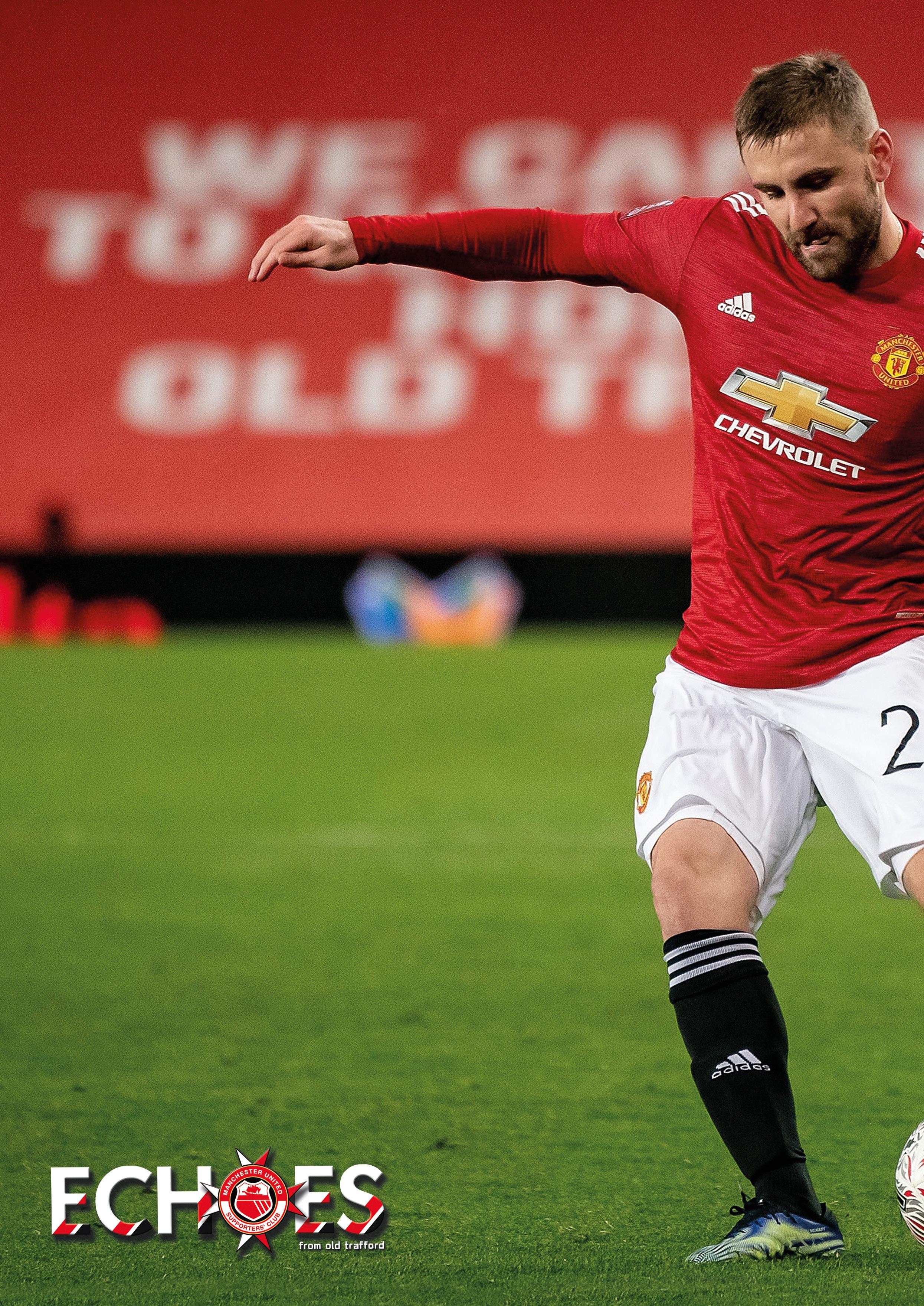
7 minute read
FT BUSINESS OF FOOTBALL SUMMIT
by Robert Mizzi

The FT Business of Football Summit returned for its third iteration on the 17-18 February, this time in digital format. One of the main objectives of this summit was to explore how business models within football are adapting in these challenging times.
In this article I will focus on what, in my opinion, were the salient points from the perspective of football fans.
Proponents of Super League under fire, but an expanded Champions League isn’t a done deal

The COVID-19 pandemic has been devastating for all football clubs financially, but the huge losses suffered by the so called “elite clubs” have led to new talks about reshaping European football.
Spain’s Real Madrid and FC Barcelona are among those discussing a $6bn JPMorganbacked plan to launch a breakaway European “Super League”. We all know that this “Super League” has been discussed for a few years now, but the current scenario has seen a new impetus to push this on the agenda once again. project. Amongst these, Christian Seifert, the chief executive of Germany’s Bundesliga, who launched a two-footed tackle on the project’s proponents. Not mincing his words, Seifert pointed out what he describes as the brutal truth: “a few of these so-called super clubs are in fact poorly-managed, cash-burning machines that were not able, in a decade of incredible growth, to come close to a somehow sustainable business model. If I was an investor, I’d ask if they are the right partners.”

I would tend to agree despite the fact our beloved team is one of the “elite clubs” pushing this proposal forward. On the other hand, Manchester United seem to have a sustainable business model and would not, in my opinion, classify as a cash burning machine (many of us true football supporters are in fact annoyed that this seems to be the main priority for our club in recent years).

Those united in their opposition to the super league are, however, divided on reforming existing club competitions, such as the Champions League. tournament. Richard Masters, the English Premier League’s chief executive, said he would not make concessions that would allow for more money-spinning European ties, for example, by reducing the number of teams in English football’s top division. It does not happen often, but I seem to be in agreement with Masters on this one.
Lars Christer-Ollson, head of European Leagues, the body that represents national divisions, said he wants any extra Champions League places to be awarded to teams in smaller countries, such as the champions of Scotland or Denmark, and not the sixth place team in England or Spain. That idea is anathema to top clubs who want greater guarantees of playing continental football every season.
When the UEFA Champions League (abbreviated as UCL), was born in 1992, taking over from the European Cup, many of us supporters did not like the idea at first. The idea that the club winning the Champions League might have finished second or third, or even fourth in the domestic league in the previous season seemed somewhat inconsistent with the idea of a league for champions. Twenty years down the line, everyone seems to have taken this on board. The point is that whatever changes will happen – and financial reasons will probably dictate these changes, we supporters will have to adapt.
Broadcasting rights Read this carefully. Clubs in Europe’s five big leagues — England, Germany, Spain, Italy and France — earned a combined €17bn in revenues last season, primarily through TV contracts.
However, following the pandemic, growth in football broadcast rights may be set to end. Or maybe not!
There have been significant reductions in the value of TV contracts in Italy and France this year. If this trend is somehow transposed into the EPL, it would be a huge blow for the Premier League clubs. It is worth noting here that the EPL will start the auction for the 2022-2025 broadcasting rights later this year.

During the summit, Richard Masters of the Premier League commented that recently conducted deals with Nent in Scandinavia and beIN Sport in the Middle East have been at similar or higher values than before the pandemic. This augurs well for the forthcoming auction. We’ll just have to wait and see if the EPL is still the most lucrative football league in the world, I guess.
FIFA versus player’s agents – a storm is brewing Players’ agents, who fight for a slice of the $5.6bn transfer market, are kicking up a storm over plans by FIFA, to cap commissions and impose stricter standards on the way players are bought and sold.
Jonathan Barnett, executive chairman of ICM Stellar Sports, which represents star players such as Gareth Bale and Aston Villa’s Jack Grealish, commented that the proposed rules are “against most laws in most countries . . . if we don’t hear from FIFA, we are going to be in court in about 30 different countries.”
Barnett accused FIFA of failing to properly consult agents over the changes but James Kitching, FIFA’s regulatory chief, contradicted Barnett’s accusations. “Consulting doesn’t mean getting your own way” Kitching, rather cheekily retorted.
Sir Alex Ferguson’s dislike for agents is well documented. He has been quoted as telling Sam Johnstone that if he was old enough to vote, he was old enough to make his own decision on the contract. It is also reported that the negotiations which led to Pogba joining Juventus made Sir Alex call Raiola a ‘s***bag’. It would be hard to contradict Sir Alex on that one!
Footballers have become athlete activists Marcus Rashford has faced attacks by rightwing politicians and commentators for his campaigning on eradicating child food poverty. It won’t stop him attempting to hold the UK government to account though. “I already understood that somebody in my shoes is already a target anyway,” he commented during the summit. Rashford was also quoted as saying that “there is a lot of negative stuff on social media and people like to highlight that all the time, but when there is something positive about social media it should be highlighted more and more people would use it for that way.”
Wilfried Zaha made headlines by vocalising an unwillingness to join anti-racism gestures before matches, saying they were no replacement for progress on systemic changes to prevent abuse. “I feel taking the knee is degrading,” said Zaha. “My parents taught me to be proud to be black. I think we should stand tall.”
The footballing world has changed and as supporters have to accept that modern football stars now have a very strong following on social media. It is a reality, and players have to find the right balance between focusing on their career’s and becoming social media activists. Having said that, social media policies exist at most workplaces and I am sure football clubs have them as well.
Why football is more than a financial game A couple of stories that remind us that football For 25 years, Delia Smith and Michael Wynn-Jones have been the majority owners of Norwich City. Despite offers to sell, the pair see themselves as “caretakers” of a local institution. “We want to try and do it a different way from an Arab Sheikh or a Russian oligarch,” said Smith, whose side sit atop the Championship with a team built on youth players. “A lot of supporters are very, very regretful at having rich owners” Smith commented. Now, why does this comment ring a bell, I keep asking myself!
Another story. Maggie Murphy is general manager of Lewes FC, a lower league English side that nearly went bust after the 2008 financial crisis. It has since turned itself into a fan- owned club that pays its male and female players at similar levels. Lewes just signed up Lyle & Scott, making the clothing brand its biggest sponsor to date. “They like our equality stance,” said Murphy, “That’s why they’re with us.” Heartwarming, in my opinion.
A rising star… On the pitch, Borussia Dortmund’s Erling Haaland lit up the Champions League with a couple of superb goals against Spain’s Sevilla in a recent UCL match. Data suggests the Norwegian striker is easily outscoring peers like Paris Saint-Germain’s Kylian Mbappe. Not only that, he is on course to overtake the past decade’s superstars: Lionel Messi and Cristiano Ronaldo if he can maintain this high striking rate. All eyes on Haaland, who I am sure will make a big move soon – his agent will dictate so!
This article is based and borrows from a recent report published in the FT entitled ‘10 takeaways from the FT Business of Football Summit.’
















